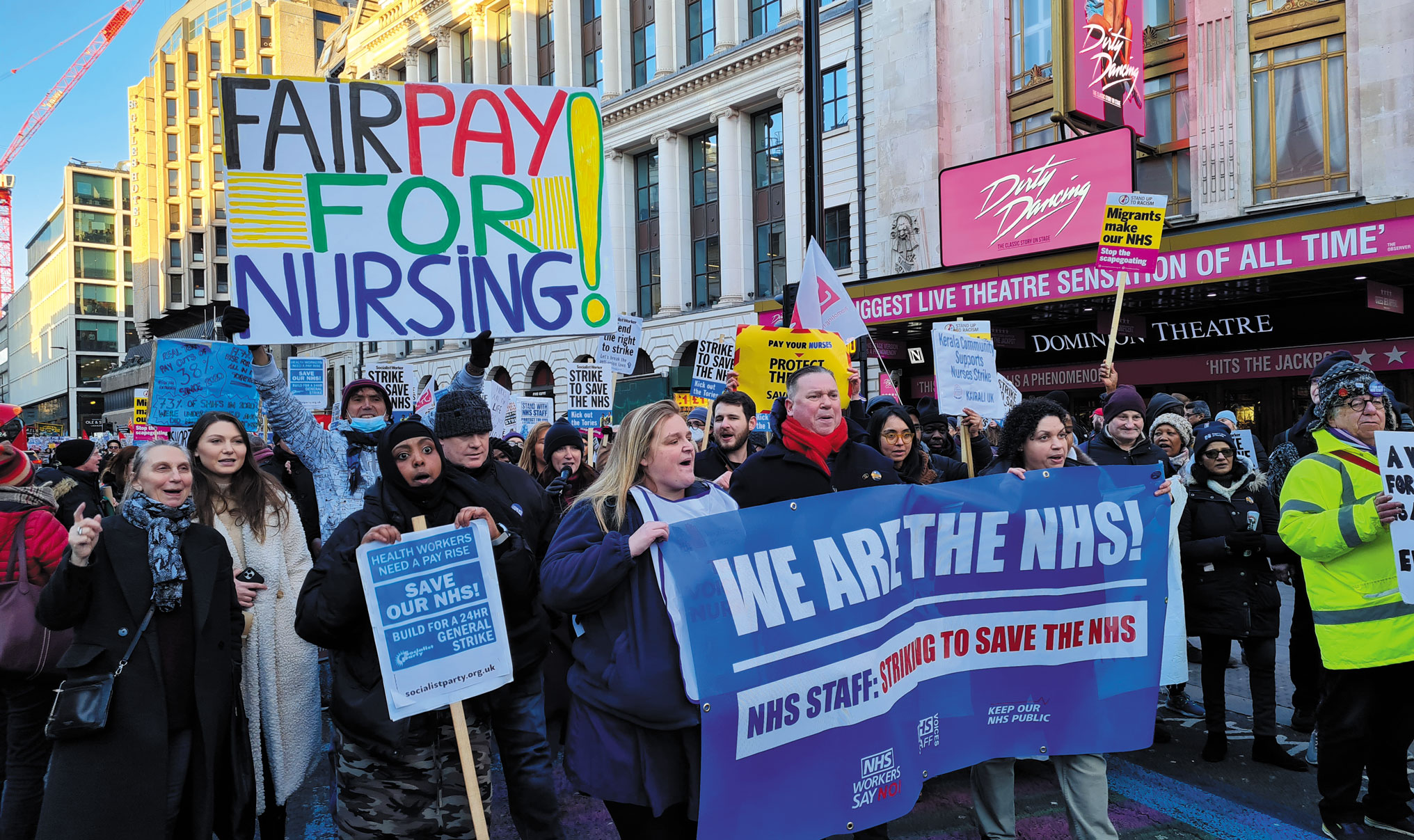In the 12th of a series of articles looking at the redevelopment of Whipps Cross Hospital, Charlotte Monro reflects on NHS funding issues, strike action and the need for improvements in end-of-life care
Amidst uncertainty over funding for the national new hospitals programme, the Whipps Cross Redevelopment team is still waiting for money to be released for the next phase, the multistorey car park. The underfunding of the NHS over the years is at such a point that impossible pressure has become the norm.
It has never been more urgent to fight for our NHS. Thousands of nurses, ambulance staff and therapists are taking strike action for this reason. I am inspired by the courage and determination of my health care colleagues who are taking this stand because the shortage of staff means their patients are suffering and they cannot deliver the care they want. Nurses’ real pay has fallen by £5,200 compared to 2010, whilst paramedics’ real pay is down by £6,700. They are asking to be treated as caring human beings and valued for the vital work they do.
Our campaign for the future of Whipps is not only for the best buildings and spaces to meet our health care needs, but for its dedicated staff, without which there is no future. The work to save the Margaret Centre brings this home. In January, councillors on the Joint Scrutiny Committee discussed a review of end-of-life care in the Whipps catchment area. I was one of five members of the public who addressed the meeting, calling for the Margaret Centre to be reprovided within in the Whipps redevelopment.
Despite all the evidence gathered by the review from service users, their carers and staff clearly showing how highly valued our end-of-life and palliative care unit in Whipps is, the options proposed did not include reproviding it as a dedicated unit in the new hospital build. It seems there is a missing piece in the report’s conclusions: the expertise that has been built in the Margaret Centre, the understanding of needs and the human-centred care. This must be the launch pad, and the ongoing beacon, for much-needed improvements in end-of-life care. I suggested that a unit next to the hospital linked by a bridge be considered.
A GP – who said local doctors had not been consulted about the Margaret Centre– added: “The centre provides an invaluable resource for the community, particularly for dying patients. It also provides respite care. For doctors like myself, it’s such a wonderful place to go to and share grief. Yes, some people want to die at home and that’s their choice, but there are some that need this centre.”
If you have experience of end-of-life care or feel strongly about this, make sure you have your say. The review is ongoing with engagement sessions being planned and a consultation to be launched later this year.
And please support our health staff!
To join the campaign or share views, email whipps.cross.campaign@gmail.com




